Nehemiah Chapter 12 * Come Together

Nehemiah Chapter 12
Gone to Mex & Back
Whiners and Complainers
I cried a lot after I moved from Mexico. Saddened I was no longer a part of the assembly at Calvary Chapel in Rosarito. Psalm 42:4 best expressed how I felt, missing the worship services and fellowship of believers. "When I remember these things, I pour out my soul within me. For I used to go with the multitudes. I went with them to the house of God, with the voice of joy and praise, with a multitude that kept a pilgrim feast."
And to think, when I first moved there, I was a chronic complainer. It was something the Israelites and I had in common. We complained instead of being grateful. The Jewish people, before they became the Israelites, whined to Moses, “We want fresh meat. We’re tired of manna. We want vegetables like we had in Egypt.” A new complaint every day.
It's funny how we can be where we want to be, but manage to find something to complain about any way. I wanted to become a member of Calvary Chapel Rosarito. This was the first church I had attended that didn’t hound me to join or support them financially. Instead, sermons emphasized going through the Bible, book-by-book. Still, Yet, I complained. "Why do we have to sing so much at church? Why does everything have to be bi-lingual? I don’t want to go to a Women’s Bible Study. All they do is talk. I have ADHD, I need quiet.” So they put me in a women's study group where we had a room to ourselves. And then I complained about the cost of the materials. “I can’t afford a book,” I cried. So, they gave me one and said to pay later if I could. These were God’s people.
I found even more to complain about outside the church. “Wal-Mart speakers are too loud. They only speak in Spanish. Caesar’s Pizza didn’t taste like Caesar’s in the States. McDonald’s doesn't even have green Shamrock Shakes on St. Patrick’s Day.” Tired of being such a whiner, I asked the LORD, “Let me see Mexico through Your eyes." Immediately, Jesus came to my rescue.

It was like being in the boat with the disciples in the middle of the storm and Jesus walked on the water, climbed into the boat (after rescuing Peter from drowning) and “immediately” the boat reached the shore. The same was true for me. Immediately I was where Jesus wanted me to be. Ready to learn the real meaning of worship.
Pastor Mike Vincent always put in a plug during service for attending at least three fellowship functions per week. “To help us grow,” he said. So, by taking my regularly prescribed dose of fellowship and worship, I began to feel a wonderful connection with my brothers and sisters in Christ. When I was wrapping up a First and Second Peter class, I surprised Pastor Mike when I told him how happy I was to know he had my back. For me, it was a moment of freedom, realizing God gave us shepherds to help the congregation experience a unified worship service in a bi-lingual church.
And so I learned, the importance of worship is not about the music or participating in weekly studies, but turning your life over to Christ, and start trusting Him c-o-m-p-l-e-t-e-l-y. Easier said than done, but once you realize He really is in control of your life, prayer and praise become natural. He will give you a heart and a desire to serve like He did for Nehemiah. Just remember to pay attention, be a good student, sit still, and listen.
All the time I wasted on being critical about the Mexican culture and people and all the churches I’d previously attended had kept me too busy to appreciate the good things about them. Remember, Mary and Martha? Martha was complaining because Mary wasn’t helping, and Jesus pointed out that Mary had chosen the good thing , to sit at His feet and listen. I thank Jesus for opening my eyes and helping me find the connection I was looking for. God wants us to praise Him who sits on the throne. One form of worship is to offer sacrifices and fast by following the commandments of Christ. Sitting alone and keeping silent is another form of worship. Without prayer, praise, singing, and reading, worship is void.
As we'll see in Chapter 12, for the children of Israel, the dedication of the physical wall was more than a celebration; it was a dedication of the spirit of the people promising to renew and keep their vows and follow God’s ordinances. It was such a joyful celebration that the Israelites could be heard “from afar.”

NEH 12: DAY 45 READY, SET, READ!
Section I: The Priests and Levites (Ezra 2:36–40 )
1 Now these are the priests and the Levites who came up with Zerubbabel the son of Shealtiel, and Jeshua: Seraiah, Jeremiah, Ezra, 2 Amariah, Malluch, Hattush, 3 Shechaniah, Rehum, Meremoth, 4 Iddo, Ginnethoi, Abijah, 5 Mijamin, Maadiah, Bilgah, 6 Shemaiah, Joiarib, Jedaiah, 7 Sallu, Amok, Hilkiah, and Jedaiah. These were the heads of the priests and their brethren in the days of Jeshua.
8 Moreover the Levites were Jeshua, Binnui, Kadmiel, Sherebiah, Judah, and Mattaniah who led the thanksgiving psalms, he and his brethren. 9 Also Bakbukiah and Unni, their brethren, stood across from them in their duties.
By now, some of these names of priests and Levites might sound familiar. They originally returned with Zerubbable and many had settled in towns in or around Jerusalem. Later, verse 27 talks about seeking them out to be sure everyone was included in the dedication of the Wall.
10 Jeshua begot Joiakim, Joiakim begot Eliashib, Eliashib begot Joiada, 11 Joiada begot Jonathan, and Jonathan begot Jaddua.
12 Now in the days of Joiakim, the priests, the heads of the fathers’ houses were: of Seraiah, Meraiah; of Jeremiah, Hananiah; 13 of Ezra, Meshullam; of Amariah, Jehohanan; 14 of Melichu, Jonathan; of Shebaniah, Joseph; 15 of Harim, Adna; of Meraioth, Helkai; 16 of Iddo, Zechariah; of Ginnethon, Meshullam; 17 of Abijah, Zichri; the son of Minjamin; of Moadiah, Piltai; 18 of Bilgah, Shammua; of Shemaiah, Jehonathan; 19 of Joiarib, Mattenai; of Jedaiah, Uzzi; 20 of Sallai, Kallai; of Amok, Eber; 21 of Hilkiah, Hashabiah; and of Jedaiah, Nethanel.
The above list is sort of a who’s who or name dropper citing descendants from Jeshua (also known as Joshua) to Jaddua. According to my NKJV study notes, the names of Ezra the scribe and Nehemiah, and other names may have been added later by another writer.
22 During the reign of Darius the Persian, a record was also kept of the Levites and priests who had been heads of their fathers’ houses in the days of Eliashib, Joiada, Johanan, and Jaddua. 23 The sons of Levi, the heads of the fathers’ houses until the days of Johanan the son of Eliashib, were written in the book of the chronicles
These chronicles contained genealogy records that could be used to track down the priests and Levites through their fathers’ houses. Other records, like decrees by kings, were especially important when it came to proving that the Israelites were granted permission to do something such as rebuild the temple.
24 And the heads of the Levites were Hashabiah, Sherebiah, and Jeshua the son of Kadmiel, with their brothers across from them, to praise and give thanks, group alternating with group, according to the command of David the man of God.
25 Mattaniah, Bakbukiah, Obadiah, Meshullam, Talmon, and Akkub were gatekeepers keeping the watch at the storerooms of the gates. 26 These lived in the days of Joiakim the son of Jeshua, the son of Jozadak, and in the days of Nehemiah the governor, and of Ezra the priest, the scribe.
In verses 24 and 25, heads of the Levites stood across from their brothers as first commanded by King David; the singers, and gatekeepers were also assigned certain positions; the two groups of singers took turns to sing praises and offer thanksgiving.
Section II: Nehemiah Dedicates the Wall
27 Now at the dedication of the wall of Jerusalem they sought out the Levites in all their places, to bring them to Jerusalem to celebrate the dedication with gladness, both with thanksgivings and singing, with cymbals and stringed instruments and harps.
28 And the sons of the singers gathered together from the countryside around Jerusalem, from the villages of the Netophathites, 29 from the house of Gilgal, and from the fields of Geba and Azmaveth; for the singers had built themselves villages all around Jerusalem.
The whole gathering included those people who lived inside Jerusalem and those who lived in the outlying communities and farmlands. Everybody came. The New Testament paints similar pictures of pilgrimages made to the City of David to celebrate the festivals, while singing Psalms of praise and thanksgiving on the road.
30 Then the priests and Levites purified themselves, and purified the people, the gates, and the wall.
Very similar to Chapter 3, the first assignments were made, then Sheep Gate was rebuilt and consecrated by Eliashib the high priest. But he didn’t stop there; he consecrated the other gates. For this celebration, everything was purified.
31 So I brought the leaders of Judah up on the wall, and appointed two large thanksgiving choirs. One went to the right hand on the wall toward the Refuse Gate. 32 After them went Hoshaiah and half of the leaders of Judah, 33 and Azariah, Ezra, Meshullam, 34 Judah, Benjamin, Shemaiah, Jeremiah, 35 and some of the priests’ sons with trumpets—Zechariah the son of Jonathan, the son of Shemaiah, the son of Mattaniah, the son of Michaiah, the son of Zaccur, the son of Asaph, 36 and his brethren, Shemaiah, Azarel, Milalai, Gilalai, Maai, Nethanel, Judah, and Hanani, with the musical instruments of David the man of God. And Ezra the scribe went before them.
Even though it appears that Nehemiah’s journal jumps around quite a bit, making it difficult to follow the order of events. Nehemiah does a fantastic job orchestrating or choreographing all the events at the same time. Of course, he had designated the heads of the priests and Levites and other groups to assist in the performance.
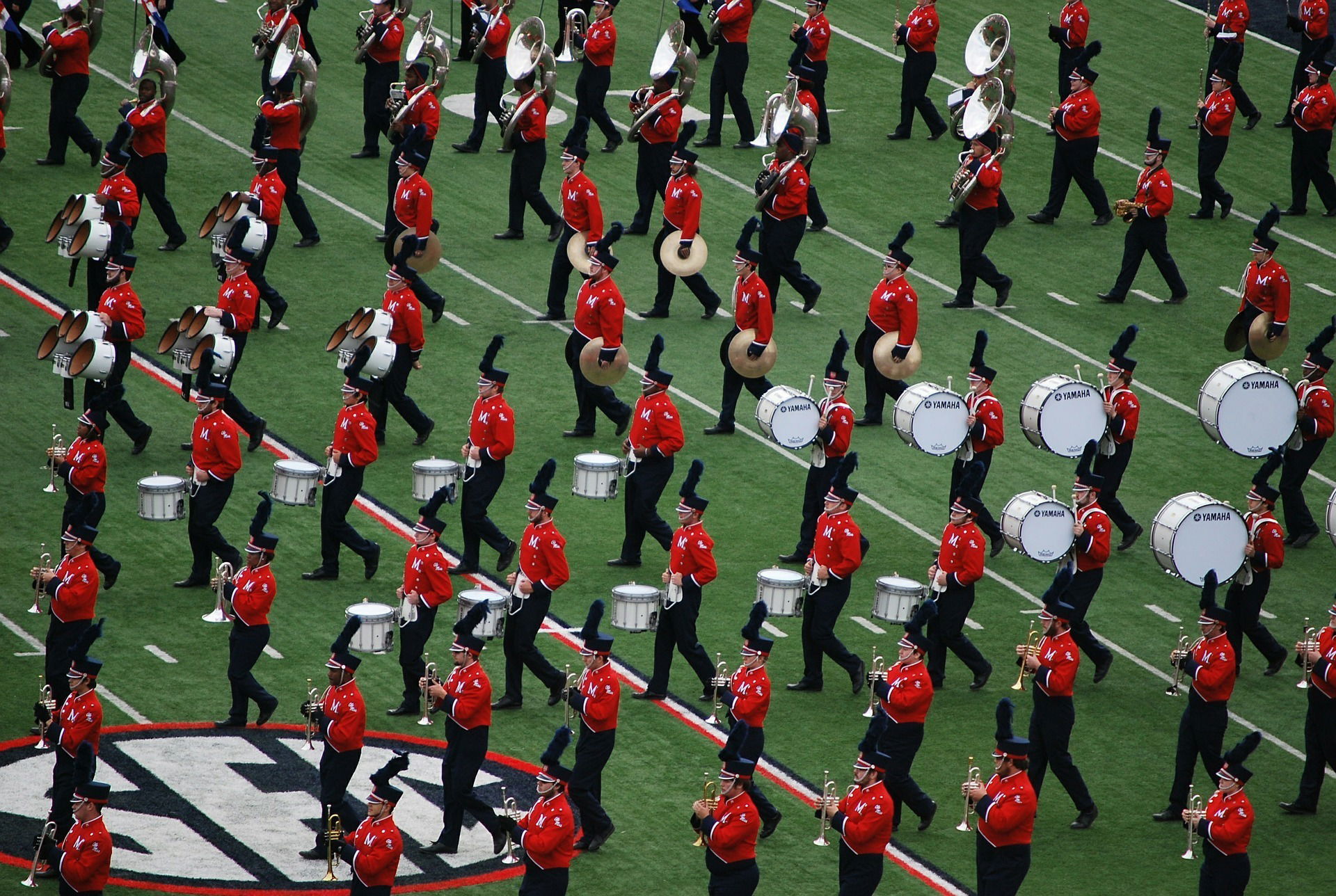
37 By the Fountain Gate, in front of them, they went up the stairs of the City of David, on the stairway of the wall, beyond the house of David, as far as the Water Gate eastward. 38 The other thanksgiving choir went the opposite way, and I was behind them with half of the people on the wall, going past the Tower of the Ovens as far as the Broad Wall, 39 and above the Gate of Ephraim, above the Old Gate, above the Fish Gate, the Tower of Hananel, the Tower of the Hundred, as far as the Sheep Gate; and they stopped by the Gate of the Prison.
This would be a good time to look at the map in Chapter 3 and highlight the two routes the choirs were taking until they met in the middle at the house of God.
40 So the two thanksgiving choirs stood in the house of God, likewise I and the half of the rulers with me; 41 and the priests, Eliakim, Maaseiah, Minjamin, Michaiah, Elioenai, Zechariah, and Hananiah, with trumpets; 42 also Maaseiah, Shemaiah, Eleazar, Uzzi, Jehohanan, Malchijah, Elam, and Ezer. The singers sang loudly with Jezrahiah the director.
43 Also that day they offered great sacrifices, and rejoiced, for God had made them rejoice with great joy; the women and the children also rejoiced, so that the joy of Jerusalem was heard afar off.
That was exactly what happened in Ezra 2. The people created such a joyful noise, it was heard afar off. Every man, woman, and child joined in. That’s nearly 50,000 people creating a joyful noise.
Section III: Temple Responsibilities
44 And at the same time some were appointed over the rooms of the storehouse for the offerings, the first fruits, and the tithes, to gather into them from the fields of the cities the portions specified by the Law for the priests and Levites; for Judah rejoiced over the priests and Levites who ministered.
According to the Law, the people provided for the priests and Levites who divided their time between temple and worship duties. If you were part of that Worship Team, wouldn’t you be happy to know your needs would be taken care of so you could devote full time to ministry?
45 Both the singers and the gatekeepers kept the charge of their God and the charge of the purification, according to the command of David and Solomon his son. 46 For in the days of David and Asaph of old there were chiefs of the singers, and songs of praise and thanksgiving to God.
King David set a new precedence for worship when he, as King, participated with much singing, dancing, and praising the LORD. Plus, he assigned certain writers to create new psalms, and from there Psalms became an important part of corporate and personal worship.
47 In the days of Zerubbabel and in the days of Nehemiah all Israel gave the portions for the singers and the gatekeepers, a portion for each day. They also consecrated holy things for the Levites, and the Levites consecrated them for the children of Aaron.
In other words, “all Israel” took care of their own ministers, singers, gatekeepers, and those involved in worship because along with those titles, came a full-time job.
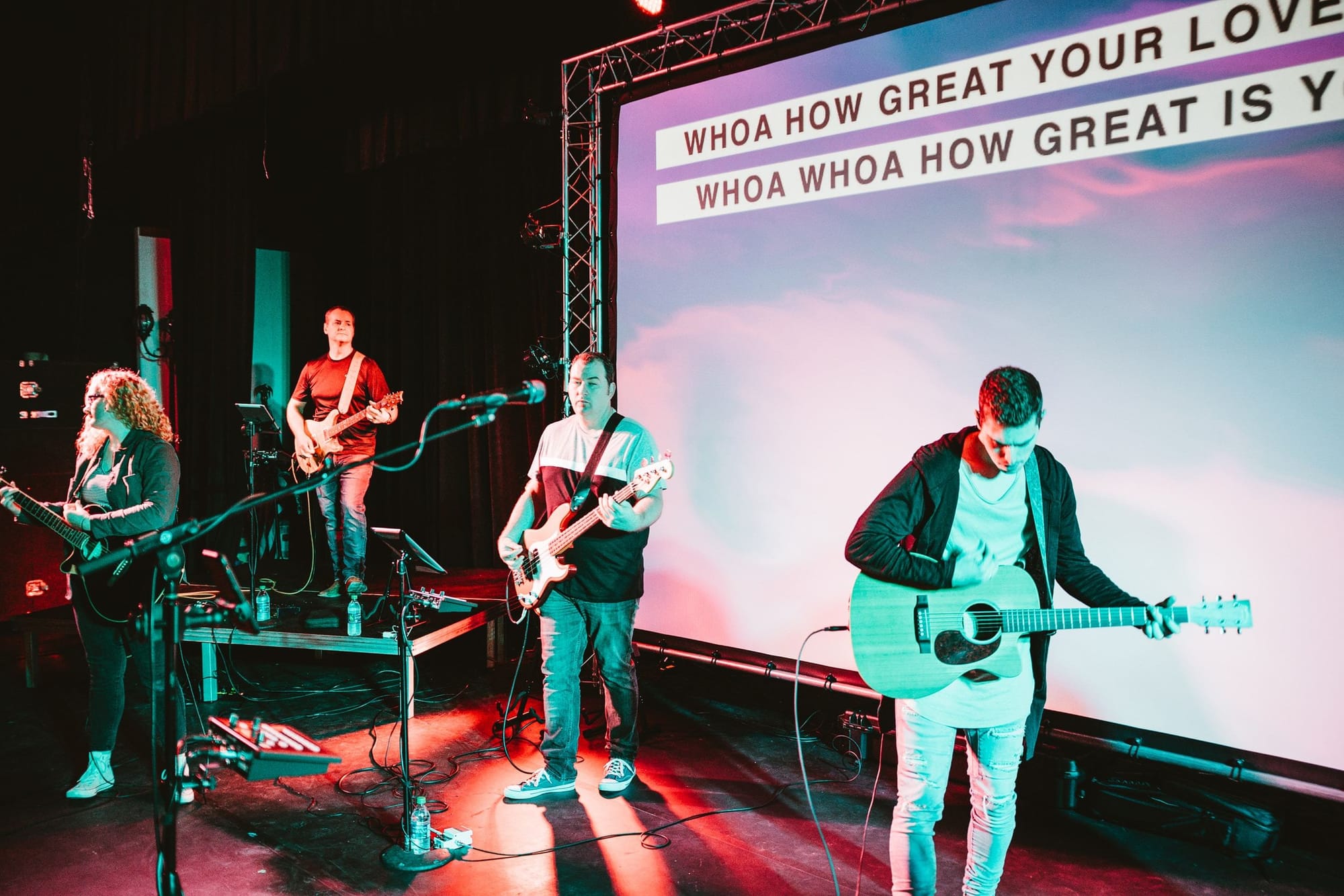
NEH 12: DAY 46 CLASS NOTES & CONNECTIONS
In Chapter 12, Nehemiah reinstituted worship the way King David would have wanted it. When the Israelites returned home to Jerusalem, once again they could build on the resources needed for worship and celebrations and dedications such as the Wall.
Nehemiah sought out the Levites who were divided into singers and those sons of fathers and priests who played instruments, a marching band that went in two directions and met in the middle. Can you imagine the amount of planning required to assemble such a musical production?
Decrees of Kings (Vs. 22)
During the reign of Darius, King Artaxerxes allowed the exiles to return to Jerusalem to restore the temple. While the work was in progress, the enemies of the Israelites falsely accused them of consorting to rebel against the king. Artaxerxes demanded the building cease until further notice. However, in his decree, he provided a clause allowing the Israelites to continue building if it proved necessary. In other words, the king kept the door, or gate, open for building to resume at another time. Actually, it was God who kept the gate open for the Israelites to return to Jerusalem. Isn’t it amazing how He can use our enemies or circumstances to benefit us? There’s even a possibility that Nehemiah knew about this decree and brought it to the attention of King Artaxerxes.
The Search for the Lost Sons Down by the River (referencing Ezra 2:36-40)
In Ezra 8:31, Ezra and those with him, camped at the River Ahava where people began to assemble. After three days, Ezra discovers there are no Levites among them. “I looked around and found none of the sons of Levi there.” (Ezra 8:15) He sent men to a town to ask the Nethinim to bring them servants for the house of God. Then Nethinim, assistants to the Levites, brought back a Levite and his brothers and sons, a total of 20 Levites, plus 220 Nethinim.
Dear Levites, Your Presence is Requested (Vs. 27-29
THE JESUS CONNECTION: Nehemiah 12:27
This verse emphasizes the importance to search out the Levites to bring them back to the city. What did Christ do after His 40-days in the wilderness? He sought out His disciples, those men whom the Father had chosen. Jesus was the good shepherd and they were His sheep, and His sheep would know His voice and follow Him, so when Jesus called to Andrew and Peter, the brothers immediately steered their boat toward shore. Peter, in his excitement, leaped into the water and swam to Jesus. When Jesus called John and James, they immediately left their father and joined Jesus. He still seeks us out today, calling us to be a part of His church, just as the Levites were called to be an important part of the worship celebration.
Today, social media, phones, texts, e-mail, and Messenger are just a few ways we share information. And, thanks to our expanded communication network, we can easily find out how many people attended a football game or live in Deli or, as this is published online (April, 2020), how many people are infected or have died from the Corona Virus. On the lighter side, we can even learn what the President had for breakfast. During Nehemiah’s time there were messengers on horseback, runners from one village to another, and even carrier pigeons or doves used to deliver news. News also passed by word-of-mouth. So, Nehemiah being a thorough guy, may have sent out a personal invitation to each Levite.

Purification by the High Priest (Vs. 30)
In chapter 12:30, Nehemiah writes about the priests and Levites purifying themselves and the people, the gates, and the wall before the dedication ceremony. Remember in chapter 3, after work assignments were made, “Eliashib the high priest rose up with his brethren the priests and built the Sheep Gate; they consecrated it and hung its doors. They built as far as the Tower of the Hundred, and consecrated it . . . ”
Ellicott’s commentary (Chapter 3, the “Bible Hub”) described the consecration of the Sheep Gate and building as far the Tower, served as a deposit or promise to God the wall would be finished, not just maybe the wall will be finished some day or in another century. Remember that if you make a vow before the LORD, be sure to keep it. In this day and age, we’ve become more lax about keeping vows, don’t you think? In Chapter 6, the wall was finished. And in Chapter 12, before the dedication, everything had to be purified again. In Verse 30, the priests and Levites purified themselves, and purified the people, the gates, and the wall.
For a better understanding of why and how the priests and Levites purified themselves, look up the following verses, then ask yourself what is the difference between how the priests and Levites purified themselves and how Jesus, our High Priest, purified His disciples.
- John 17:17-19 Sanctify them by Your truth. Your word is truth . . . And for their sakes I sanctify Myself, that they also may be sanctified by the truth.
- Heb. 9: 22 Almost all things are purified with blood.
- Heb. 9:23 Copies of the things in heaven are purified.
- I Peter 1:22 Since you have purified your soul in obeying the truth through the Spirit in sincere love of the brethren, love one another fervently with a pure heart. From NKJV study notes referencing I Peter 1:22, “We accomplish purification of our souls by obedience to God’s truth.”
- Matt. 5:8 Blessed are the pure in heart.
- James 4:8 Purify your hearts, cleanse your hands, you sinners.
- Acts 15:9 God purified the Gentiles hearts by giving them the Holy Spirit just as He did to us.
- I John 3:3 Hope in Him and everyone who has this hope in Him purifies himself. Now that’s interesting. People who hope in the LORD purify themselves. Read that again: Everyone who has this hope in Him purifies himself. So, if we believe in the LORD, waiting and hoping in Him, then we don’t need to be purified by a priest or by the sprinkling of blood because our hope purifies us.

The Singers Sang Loudly (Vs. 40-42)
Nehemiah takes the leaders of Judah up on the wall. It sounds like he was providing them with special box seats for watching the two choirs who moved in opposite directions. Some of the priests’ sons had trumpets, while others played and carried the musical instruments of King David, like the ones mentioned in Psalms. At last, when the two thanksgiving choirs meet halfway, “the singers sang loudly.” Accompanying the singers are those who played cymbals, stringed instruments, and harps. Everyone joined in making a great noise. In other words, they poured their heart and soul into their music, and people miles away heard the singers.
How do you feel about singing in public or in church? Many people, including myself, worry about how we sound because we can’t hit the high notes or the low notes. Sometimes I’ll try to harmonize somewhere in-between, but that doesn’t seem to work either. Instead of praising the LORD, I end up worrying about how I sound. My brother, on the other hand, belts out a hymn in a loud, deep voice, and it’s always a pleasure to stand next to him in church.
Is there scripture somewhere that says God will judge our singing? I don’t think so. What’s important is incorporating the elements of song and praise with thanksgiving into worship. Whether we’re standing with the choir or standing in the shower, free yourself. No longer do we need to compare our singing to the person next to us.
Psalm 149
Praise the LORD! Sing to the LORD a new song,
and His praise in the assembly of saints.
When Music Causes Division
Sometimes people struggle with the type of songs played during worship service. People who prefer singing the older hymns might feel uncomfortable singing newer contemporary songs. When too much importance is placed on what kind of songs are sung or if instruments should be allowed, it can create a division among churches. Leaving one church for another because of worship preference happens. But beware if minor issues begin to create huge divisions because anger enters the heart of a congregation. If that happens, the worshippers need to ask what’s really behind their anger or annoyance.
Singers in the Days of King David (Vs. 45-46)
“Both the singers and the gatekeepers kept the charge of their God and the charge of the purification, according to the command of David and Solomon his son. For in the days of David and Asaph of old there were chiefs of the singers, and songs of praise and thanksgiving to God.”
Remember in Chapter 7, God put it on Nehemiah’s heart to take a census of the people who were living in Jerusalem? Nehemiah compiled his list from a registry of the first exiles who had returned with Zerubbabel. The whole assembly numbered 42,360 plus 7,337 servants, nearly 50,000 people.
Through the genealogy registers, Nehemiah knew the priests numbered 4,289, and the Levites, 74. In King David’s time, 24,000 Levites were involved in worship. The Levites also assisted the priests with their duties, and the singers praised God with their music. At the time of Solomon, there had been 4,000 who “praised the LORD with musical instruments.” (1 Chr. 23:5) Those singers who returned with Ezra numbered 128. And, did you know the gatekeepers were also Levites? Again, during the time of Solomon, 4,000 gatekeepers guarded the temple. Those who returned with Ezra were 139.
NEH 12: DAY 47 NEHEMIAH & ME
July 7, 2017 11:45 A.M. Worship
Did not pray or worship first thing this A.M. but worked on my many lists, showered, walked Zig, and now my mind is too scattered to focus on the one thing that matters: The One God I need to have my morning time with before I get distracted by the catcalls of the day. Woo-woo, Jill. Look over here! Don’t forget this! Now THIS is really important. Sharknado 5!
I am sorry, LORD. My focus has not been on You. However, I read Isaiah 66 and something clicked. Your Spirit spoke.
(66:23) “And it shall come to pass that from one New Moon to another, and from one Sabbath to another, all flesh shall come to worship before Me,” says the LORD.
What??
“All flesh shall come to worship before Me,” says the LORD.
And I saw in that moment “Worship” is really all that matters. Worship the LORD, day and night, not just in the mornings or only on Sundays. We are a chosen people, a L priesthood, a Holy Nation, God’s own special people so we can praise the One who called us out of darkness and into “His marvelous light.” (I Pet. 2:9) Not just any light, but His MARVELOUS Light.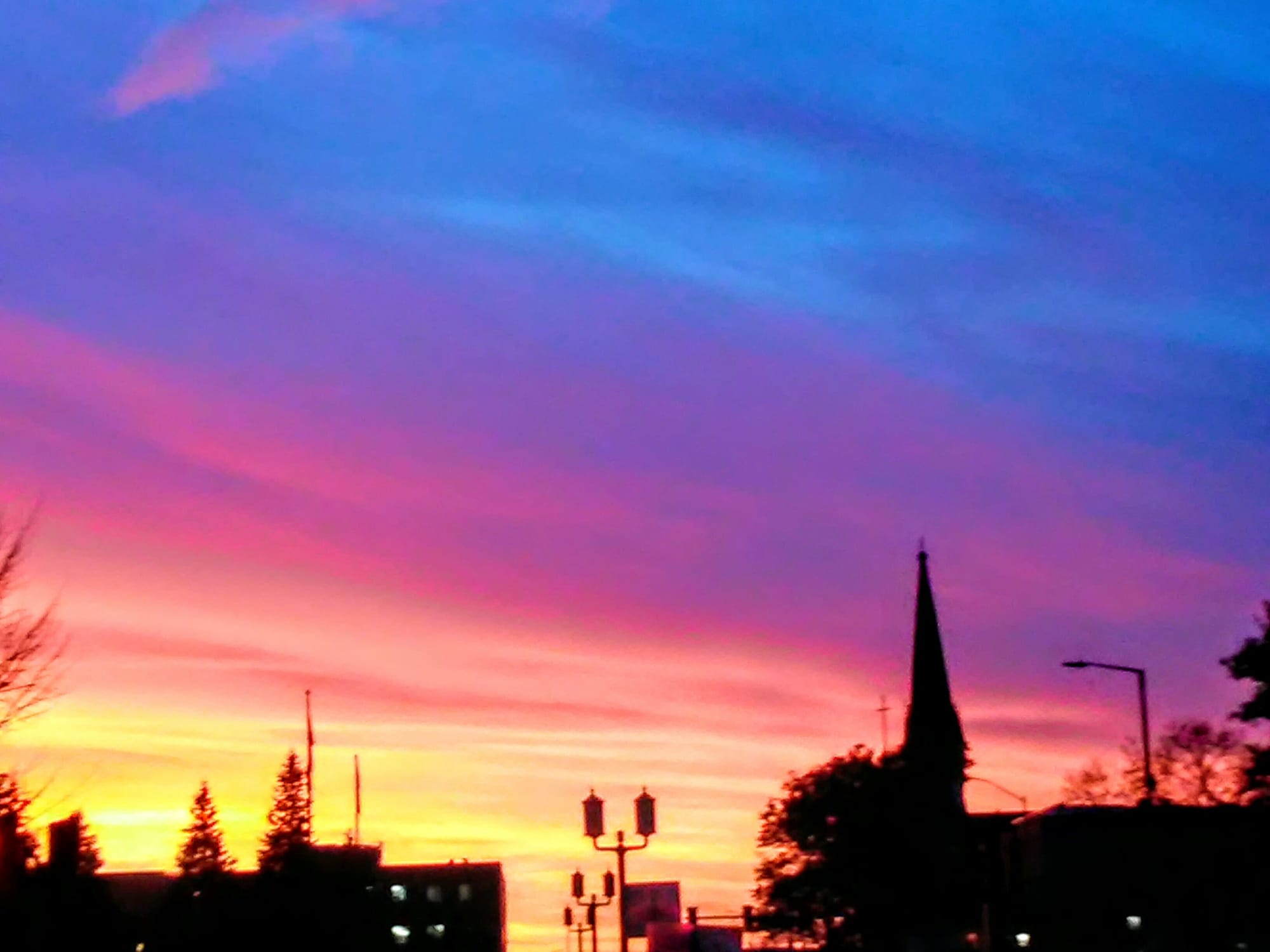
August 23, 2017 VOICES
Here’s a thought from Psalm 5:3, My voice You shall hear in the morning, O LORD, in the morning I will direct it to You, and I will look up.
Psalm 95:7, Today if I will hear Your voice let me harden not my heart.
I may pray “Let me hear Your voice, O LORD,” but does the LORD hear my voice, praying in the morning? I bet He would like to hear mine more often.
In the morning, I will direct it to You, O LORD, and I will look up.
Those words are a vow David made to God.
- In the morning;
- Direct my voice to You;
- I will look up (lift my eyes to the heavens in worship.)
We need to let God hear our voices as well. “Today, LORD, if You hear my voice, please do not harden Your heart.”
GOD’S VOICE. When He speaks to us, it can be as subtle as the Holy Spirit, a question that hangs in the air or nudges our heart after we’ve read or prayed or maybe it comes to us in the middle of the night or in the morning. God’s voice is as sweet as the chorus of birds at dawn or dusk, as quiet as the whisper of a gentle breeze. God gives the birds and sea and mountains their voice—His voice.
Psalm 104:6-7 The waters stood above the mountains. At Your rebuke they fled. At the voice of Your thunder, they hastened away.
Sept. 4, 2017 Only the Best!
Solomon’s Prayer. This morning I read I Kings 6-9:1-9. Really fascinating that Solomon and his 180,000 laborers built the temple in 7 years. “Only the best!” was Solomon’s motto. Only the best for the LORD.
Such a beautiful story. A must-read. After the temple was constructed, the LORD appeared to Solomon and says, “I’ve heard your prayer and supplications . . .” God waited until the temple was built, and the festivities ended. Was God in all His glory appearing to Solomon, or was He just strolling by or hanging out in the temple when Solomon went in to pray? “I’ve heard your prayer . . ." God told Solomon. God hears our prayers! That brought tears to my eyes.
And then the NKJV Study Bible noted the LORD was pleased by the efforts of Solomon and the beauty of the temple and even visited the tabernacle to bless it (I Kings 8:10). God reminded the king that no matter how beautiful the temple was, keeping the Law of the LORD was more important. God is not limited to physical structures.
THE JESUS CONNECTION: John 4:21
Jesus tells the Samaritan woman at the well, “The hour is coming when you will neither on this mountain, nor in Jerusalem, worship the Father. You worship what you do not know; we know what we worship, for salvation is of the Jews. But the hour is coming, and now is, when the true worshippers will worship the Father in spirit and truth; for the Father is seeking such to worship Him. God is Spirit, and those who worship Him must worship Him in spirit and truth.”
Again:
GOD IS SPIRIT and those who worship Him must worship Him in spirit and truth.
May 22, 2018 (Carrollton, MO) Celebrate!
I finished Psalms! Started around August 15, 2017, a psalm or 2 or 3 a day. This A.M. read 147, 148, 149 & the last psalm 150.
Psalm 147:1 Praise the LORD! For it is good to sing praises to our God; for it is pleasant and praise is beautiful.
This morning at 6:15, Zig & I walked to the trees and just barely entered in to grab a handful of vines. How beautiful the wooded chorus of rain drops falling from the leaves as I shook the little limbs and branches. And the birds—oh, the songs of so many birds!
Those moments brought me peace during my unhurried walk as I tried to avoid stepping barefoot on the undergrowth that hid the poison ivy. Compared to my short walks along Seventeenth & J Streets in Lincoln, this walk was MEANINGFUL.
147: 7 Sing to the LORD with thanksgiving, sing praises on the harp to our God, who covers the heavens with clouds (so awesome, LORD!), who prepares rain for the earth, who makes grass to grow on the mountains . . . He sends out His command to the earth . . . He gives snow . . . He scatters the frost . . . He casts out hail . . .He causes His wind to blow and waters to flow . . . Praise the LORD!
I find myself singing more as I go about my day, working, walking or watering. It’s like we are all psalm-writers. What was Asaph called? A music leader and wisdom-writer. We can all be Asaphs composing songs throughout our day. Right now I can hear the birds continuing their song. Oh, yes, I should live in this area just so I can listen to the songs of the birds all day. I’m also reminded of the music made by the smaller rocks on the beach at the edge of the water; pushed and pulled by the ocean, pushed and pulled in an arrangement of various tones to make one chorus. All creation sings.

YOUR TURN! Have you tried writing in different colors or drawing to emphasize a point.
NEH 12: DAY 48 PRINCIPLES INTO PRACTICE
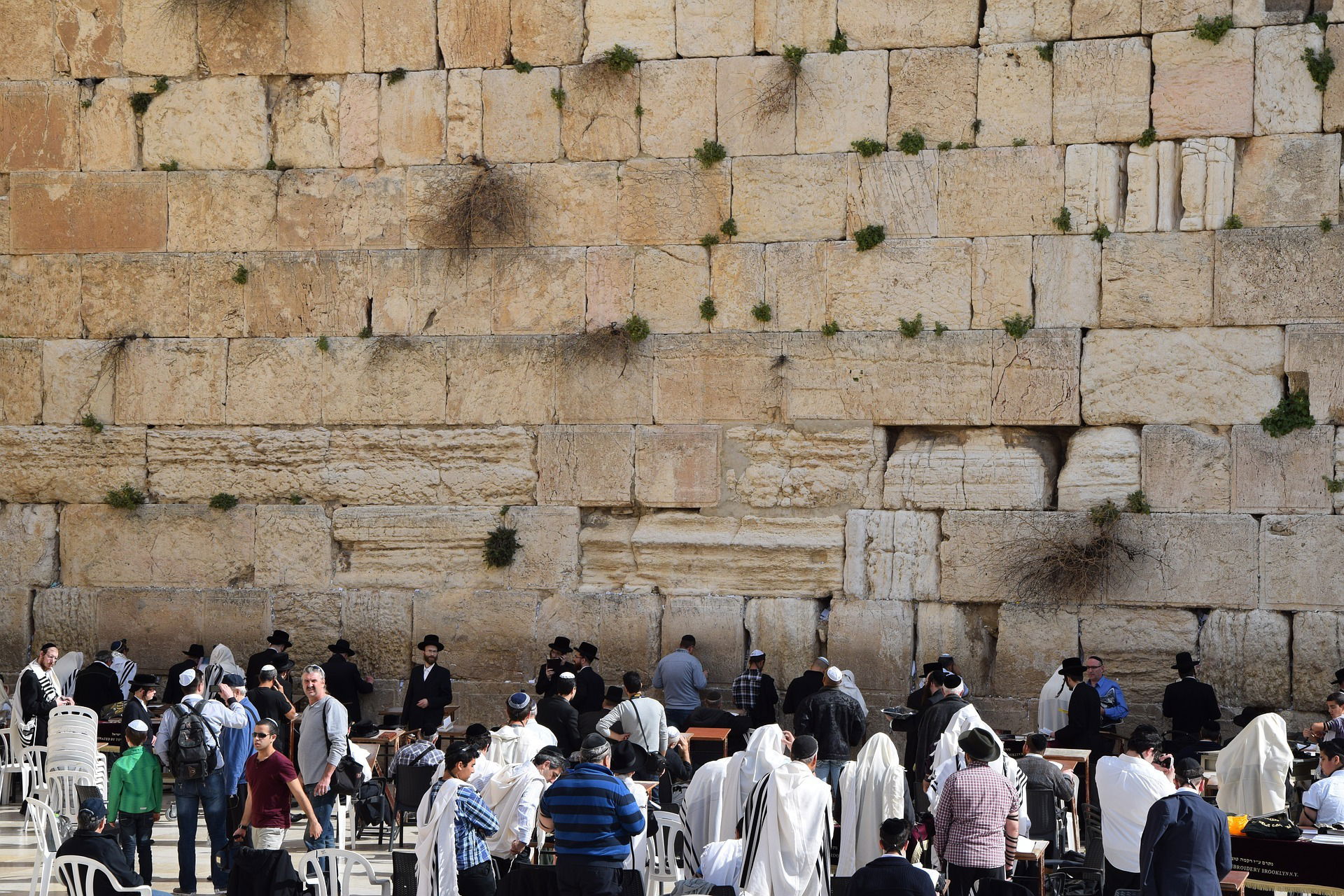
INSPIRATIONAL VERSES: NEH 12:27(Ezra 2:36–40 ) Now at the dedication of the wall of Jerusalem they sought out the Levites in all their places, to bring them to Jerusalem to celebrate . . . .
The Levites weren’t the only ones who were sought out to celebrate.
FISHERS OF MEN (from Chapter 3)
It was a search and rescue mission. When a tribe or village was under attack, many people left everything behind to head into the hills or find a cave or set up camp far from their besieged home. Rather than face captivity, the endangered villagers sought refuge in another city, and there assimilated into the foreign culture. After captivity ended, men were sent to find those who had fled, and bring them home safely. They used the term, “hunting” or “fishing” for the lost people to let them know it was safe to return.
The verse about searching for the Levites in all their places reminds me of God’s forgive-and-rescue missions. He said more than once, “I will bring them (the Israelites) back from all the places.” Think about how the Israelites had scattered over the centuries or had been lured into worshiping false religions and idols. God promised in Jeremiah 16 and in Micah that He would search for His people and bring them back from the far reaches of the earth.
Before Israel, there was Abraham; before Abraham, Noah. These men were the first fathers known not because they were Jewish, but because they were faithful. Abraham was called out of the land of Ur, a land whose people worshiped many gods. Abraham believed in the One True God, and knew His voice. Moses knew God’s voice and walked with Him as a friend; David knew the LORD as his rescuer, king, shepherd and more. Because David, too, was a shepherd, he knew the heart of the Lord (Psalm 23), which was further confirmed by Jesus, our Good Shepherd in John 10. Shepherds searched out their sheep when they were lost. In fact, Christ told the Pharisees and leaders who opposed Him that He had sheep who knew His voice. He would protect His flock and keep them safe until He called them. Sheep that His Father gave Him; and not one of them would be lost.
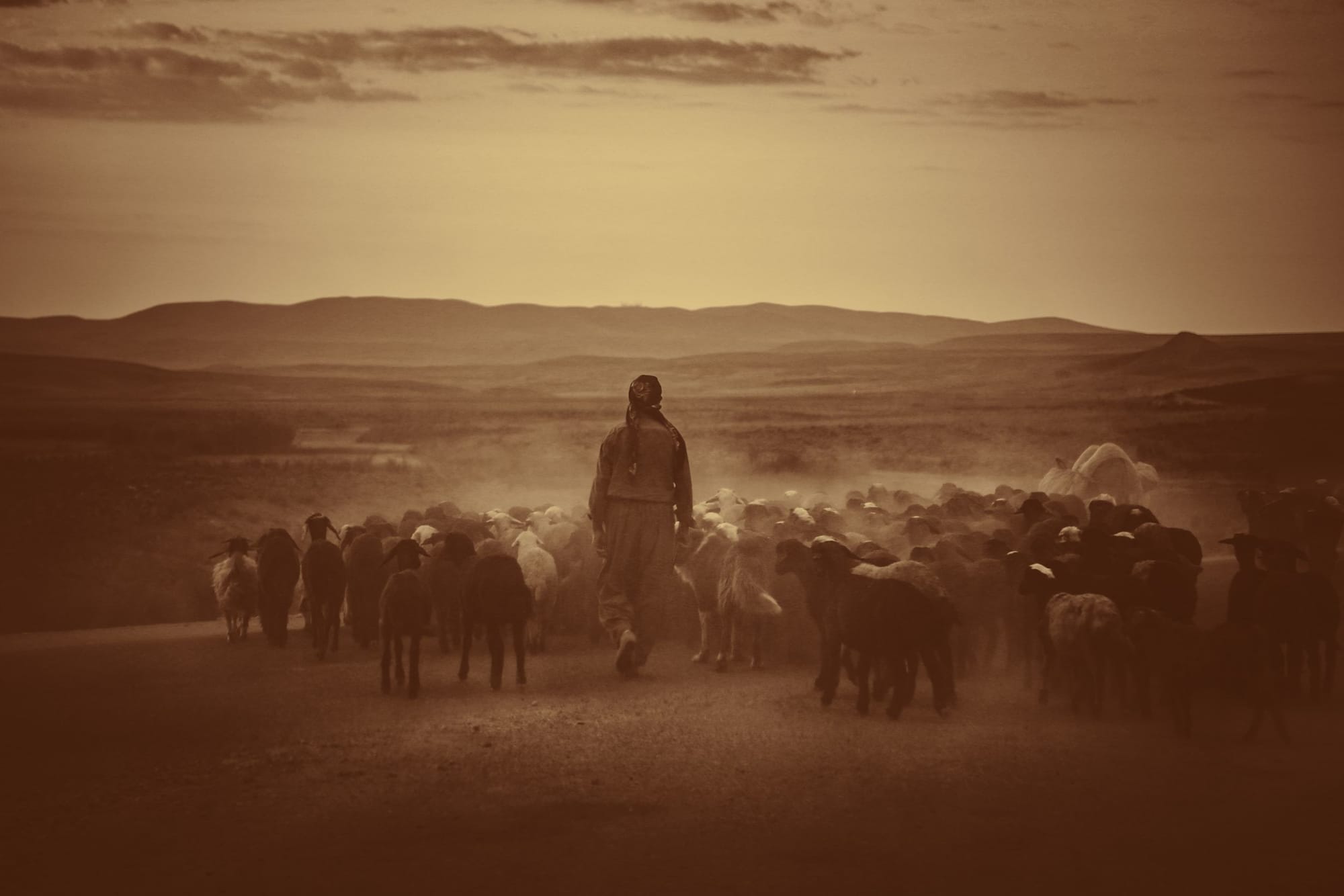
Our DNA might reveal that we’re French, Mexican, African, or other. We might be Jews or we might be Gentiles, but when Jesus came, He said He came for all men. He came to offer salvation. Eternal life. Now that’s something to celebrate.
SEEK THE LORD
Today if I will hear Your voice, let my heart not be hardened as it was in the wilderness, the wilderness of my spirit when I wandered from You. Whether I’m writing, walking or working, “Let me seek Your face, O LORD. Do not hide Your face from me.”
We have one more chapter, 4 more days before closing the book on NEHEMIAH & ME, REBUILDING YOUR SPIRITUAL WALL! Keep watch!


